Stability is Everything
Workers at a factory in Kosovo, pictured here with the machines they operate, share how their steady employment—even through the pandemic—has brought lasting benefits to them and their families.
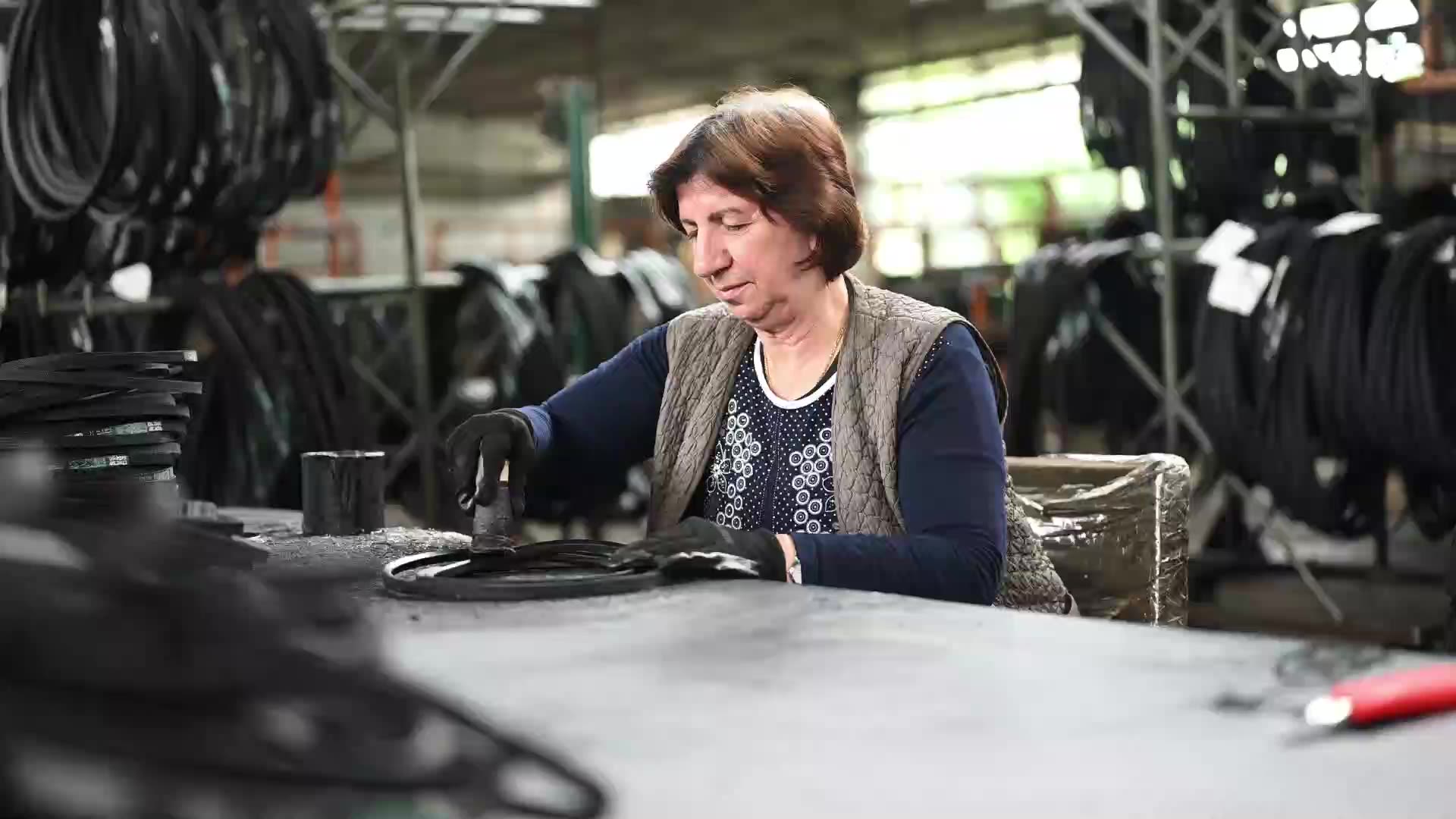
Multimedia by Djenno Bacvic. Text by Alison Buckholtz.
It’s bustling inside the factory that houses Newko Balkan, LLC, a Kosovo-based manufacturer of conveyor belts. But the pace is second nature to the factory’s 206 employees, over half of whom have been at this job for more than 10 years. That longevity is no accident. Most express gratefulness for steady employment in a country that’s among the poorest in Europe, where post-pandemic economic recovery has been slow and one in four people can’t find a job. During the pandemic, though, Newko Balkan laid off no employees; it remained open and fully operational, while following COVID-19 guidelines, and closed only for three weeks. Since then, the company has significantly increased its exports to meet mounting demand for conveyor belts in southeast Europe, according to owner and General Manager Merve Ozer Yilmaz. Its growth has also helped some local suppliers and small businesses throughout Pristina, the company’s headquarters.
Newko Balkan’s expansion was backed in part by IFC's €3.5 million investment in 2022—part of IFC’s focus on jobs and economic transformation in countries hard-hit by the pandemic.
Below, four Newko Balkan workers, pictured with the machines they operate, share how steady employment at the factory has impacted their lives.
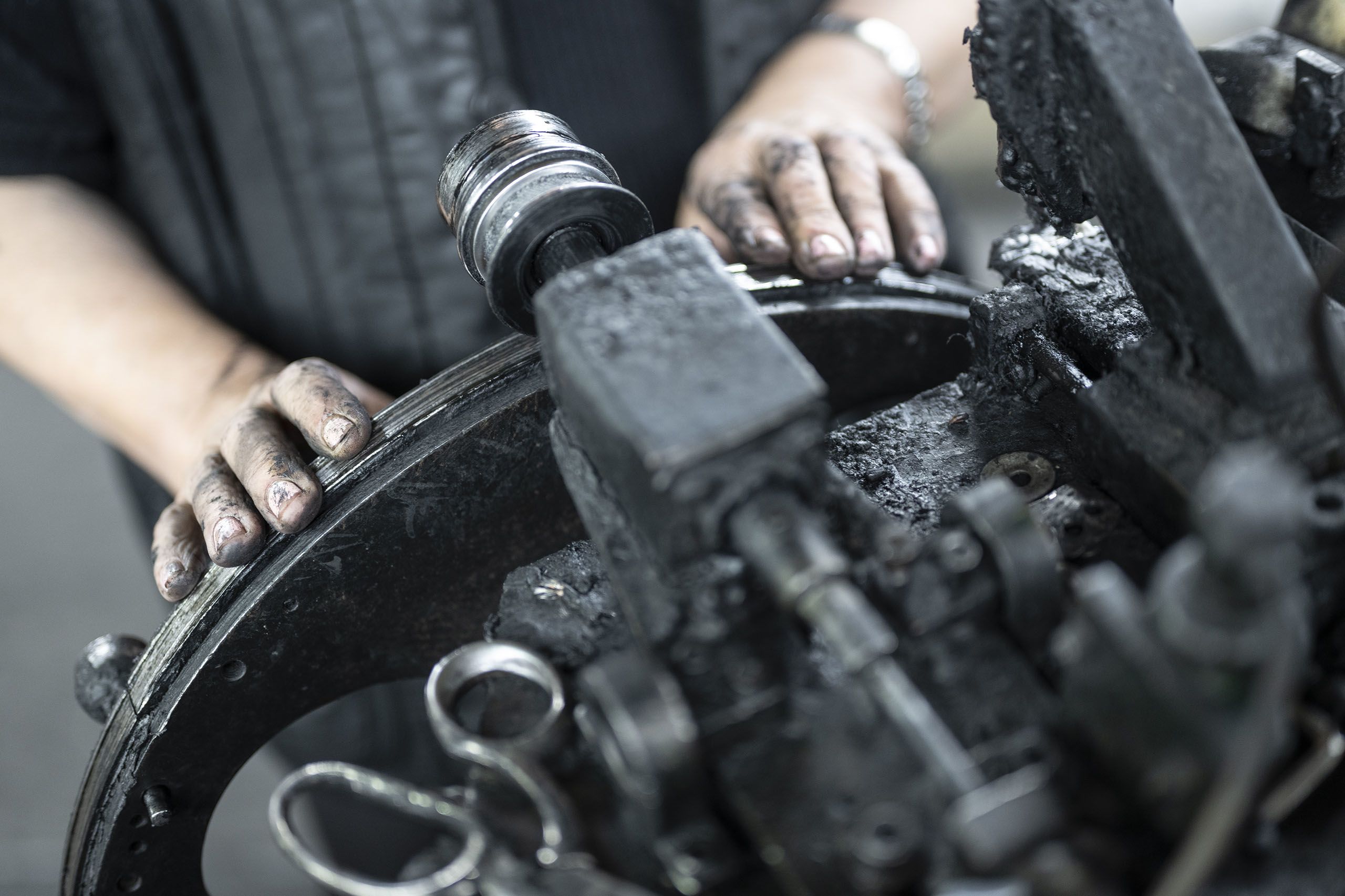
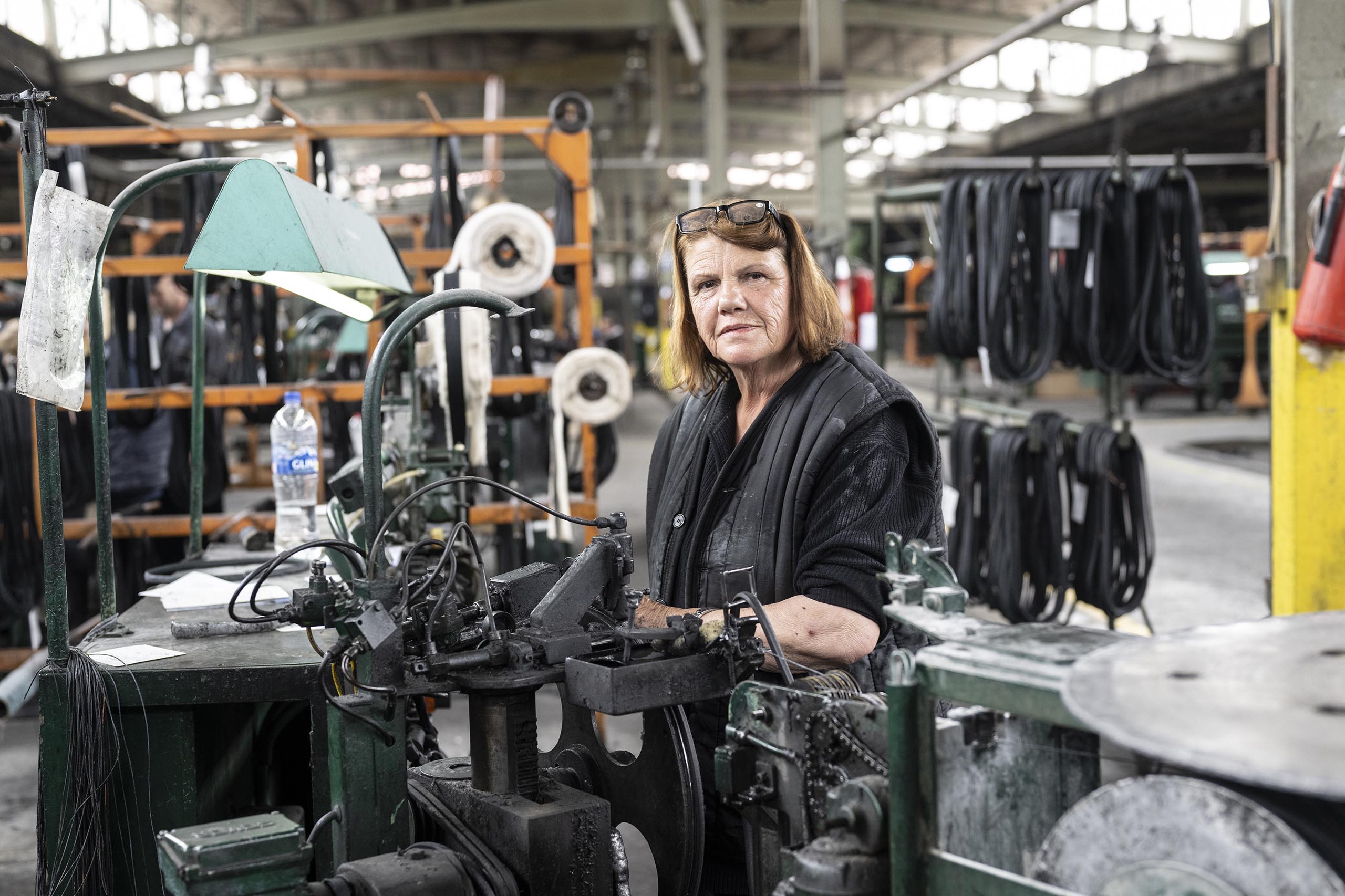
"I was lucky to have been working here during the pandemic," says Femije Byhtyqi, 63. She has been a Newko Balkan employee since 1978, and supported her husband and three adult children when their jobs were suspended during COVID-19. "If it wasn't for this factory, I would have had to borrow money from people," she says.
"I was lucky to have been working here during the pandemic," says Femije Byhtyqi, 63. She has been a Newko Balkan employee since 1978, and supported her husband and three adult children when their jobs were suspended during COVID-19. "If it wasn't for this factory, I would have had to borrow money from people," she says.
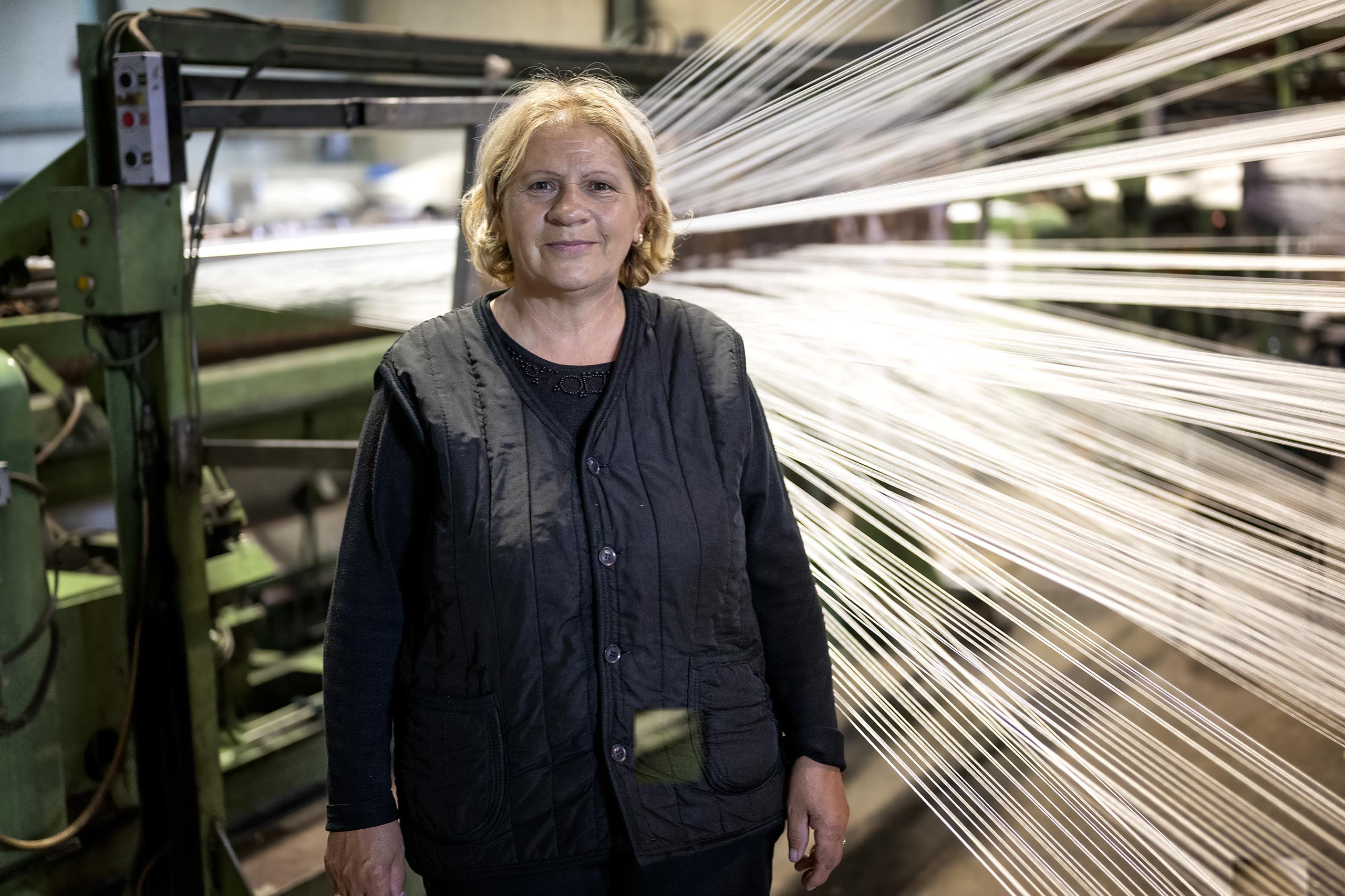
This is Feride Kolgeci's 42nd year as an employee at Newko Balkan, where she produces textile fabrics. "Working during the pandemic was something that made life easy for me and my husband in terms of income, because income for other family members of mine was interrupted." Now that family members are working again, the 62-year-old says she spends most of her income on medicines.
This is Feride Kolgeci's 42nd year as an employee at Newko Balkan, where she produces textile fabrics. "Working during the pandemic was something that made life easy for me and my husband in terms of income, because income for other family members of mine was interrupted." Now that family members are working again, the 62-year-old says she spends most of her income on medicines.
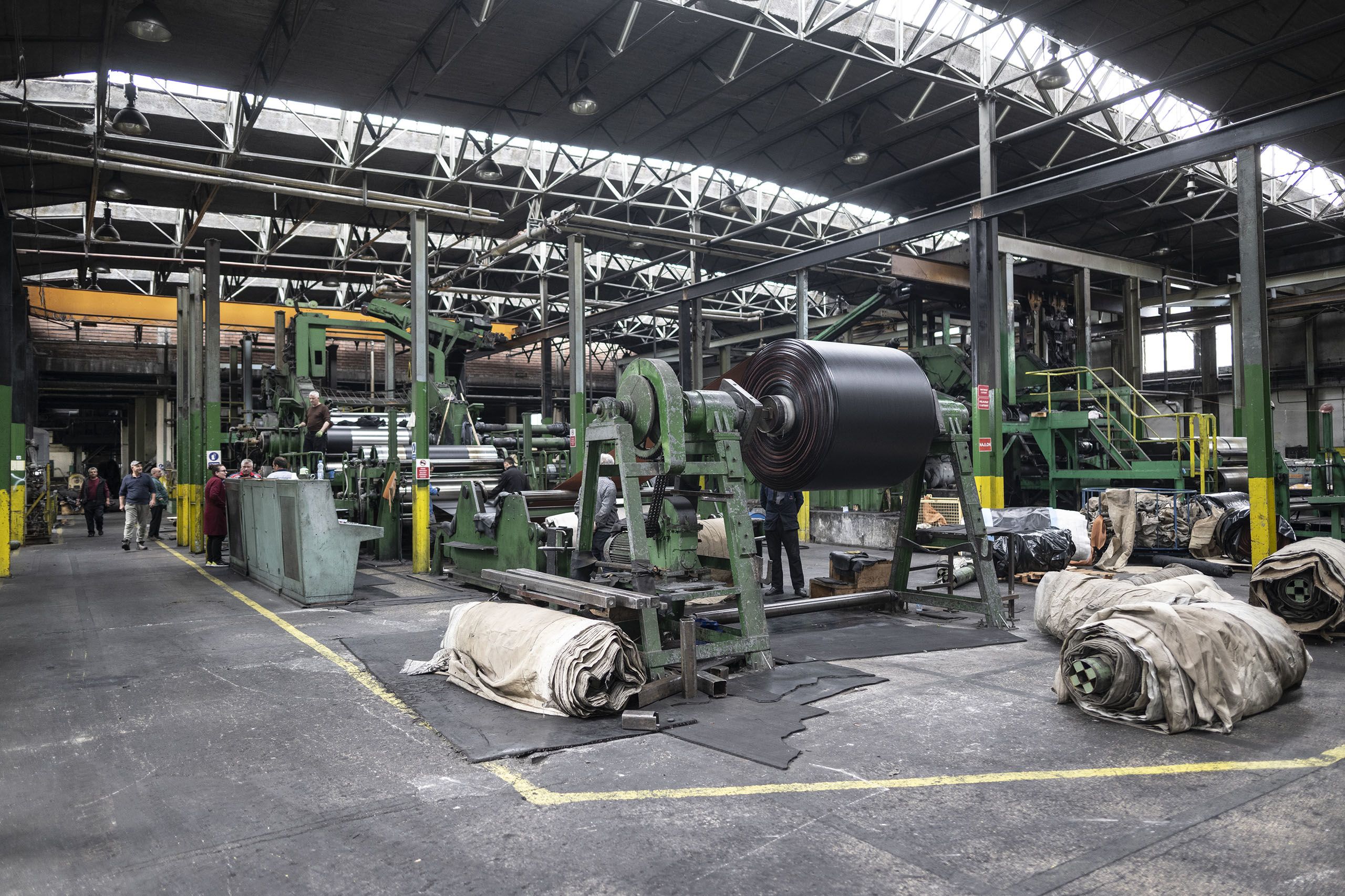
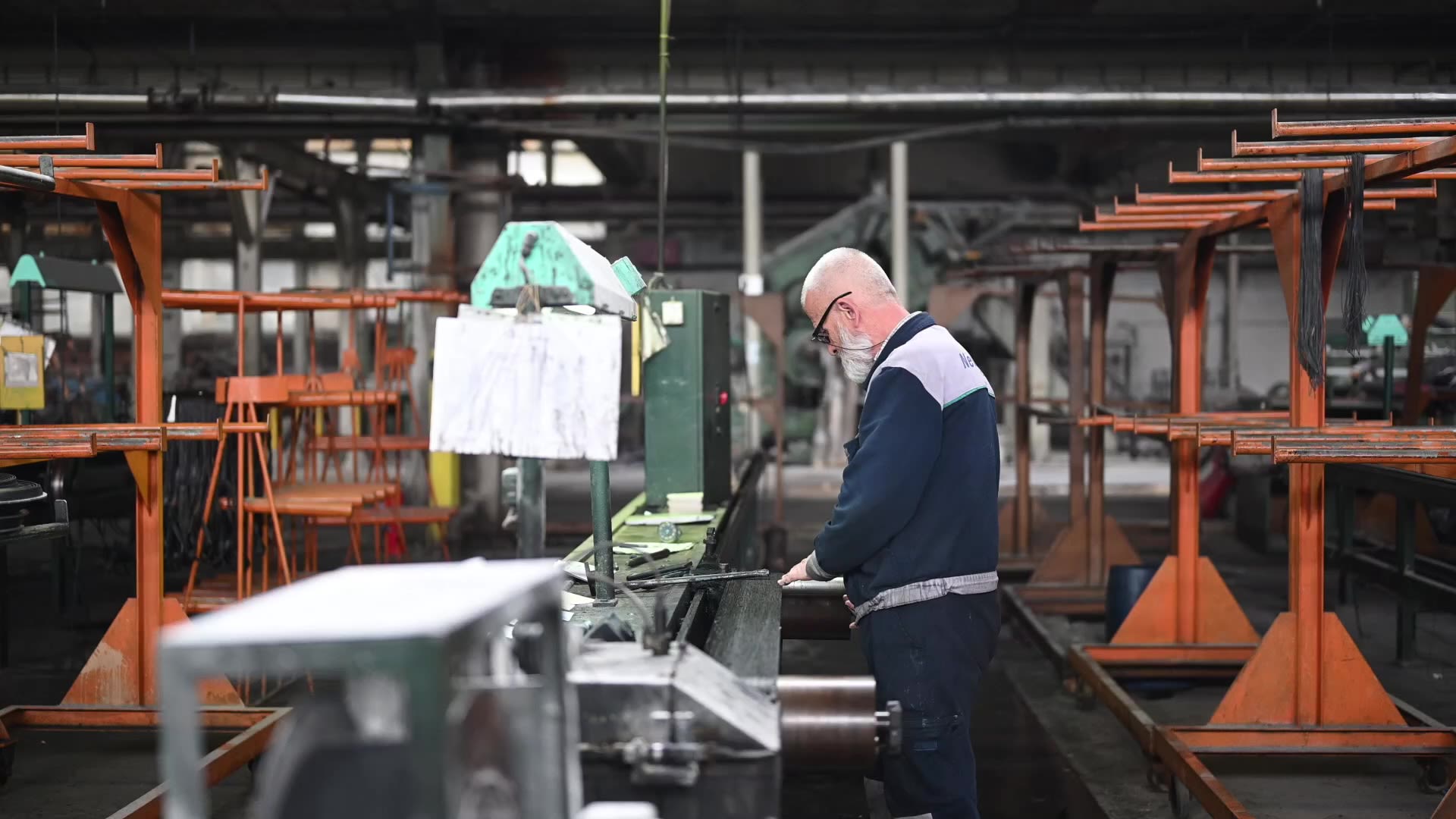
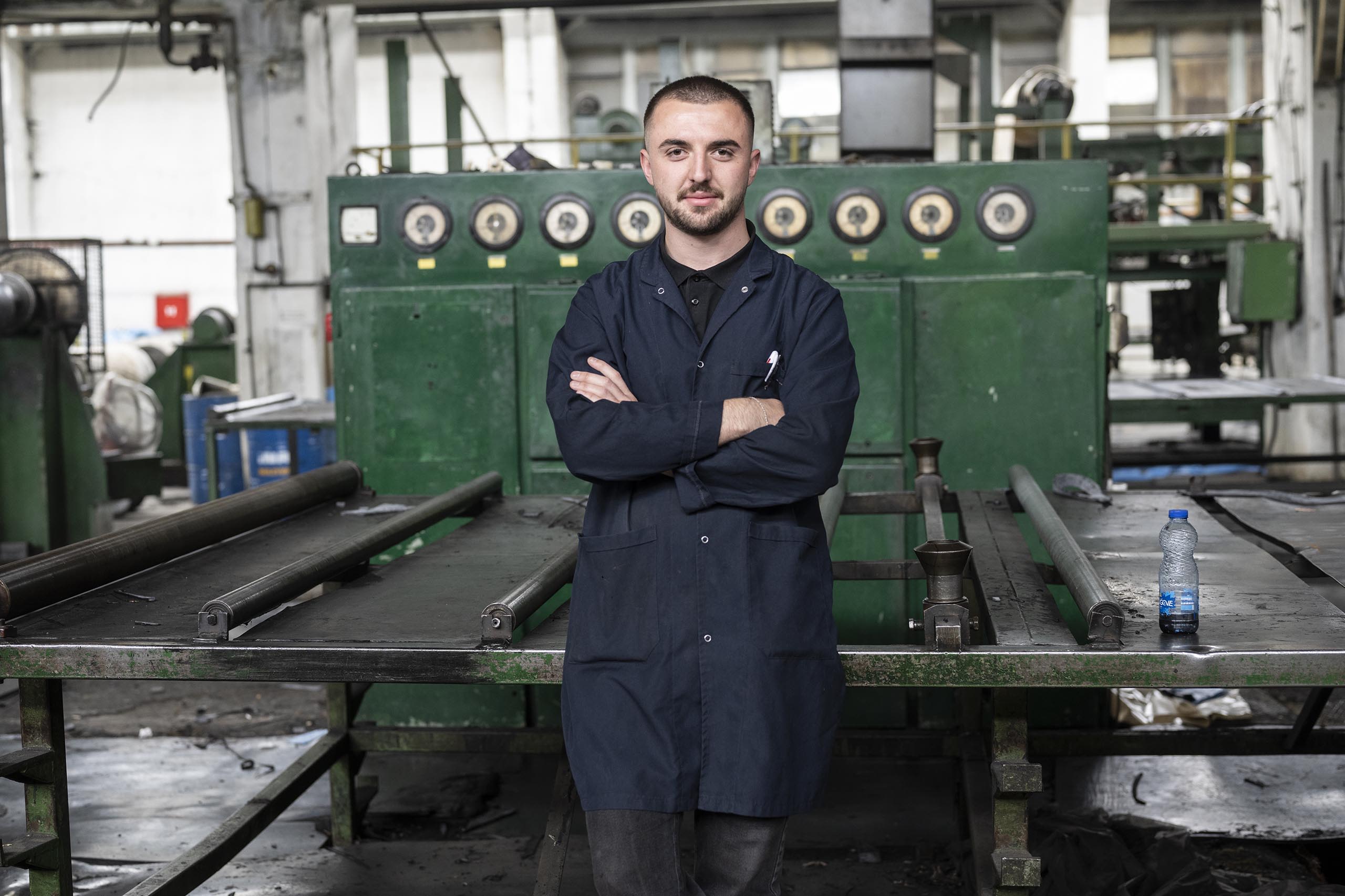
Albin Bekteshi, 23, joined Newko Balkan after the pandemic was over. After starting as an intern, he progressed quickly: first to a mechanical engineer, and then to head of the department that maintains production machines. He now manages 20 employees.
Albin Bekteshi, 23, joined Newko Balkan after the pandemic was over. After starting as an intern, he progressed quickly: first to a mechanical engineer, and then to head of the department that maintains production machines. He now manages 20 employees.
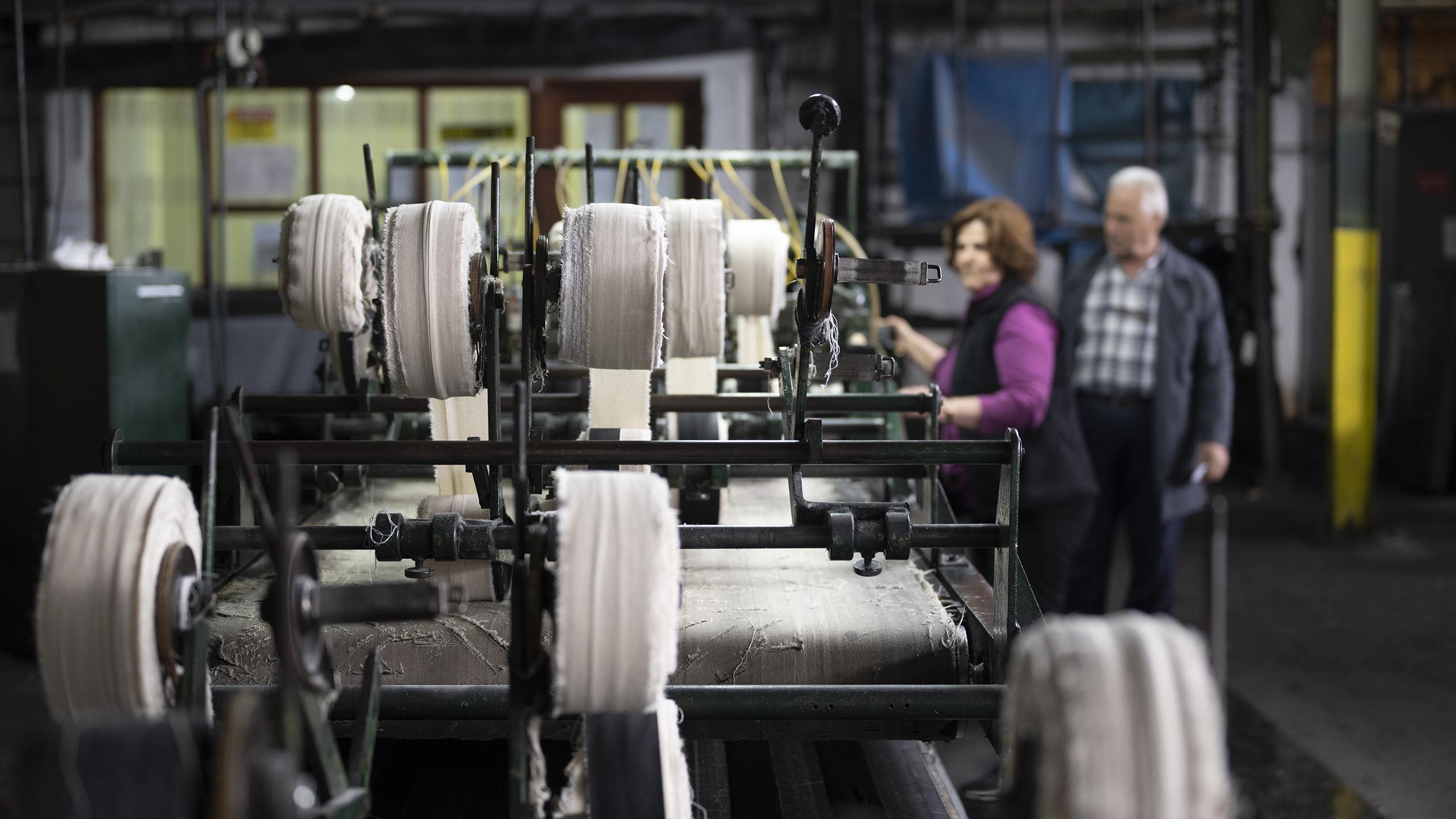
Published November 2023